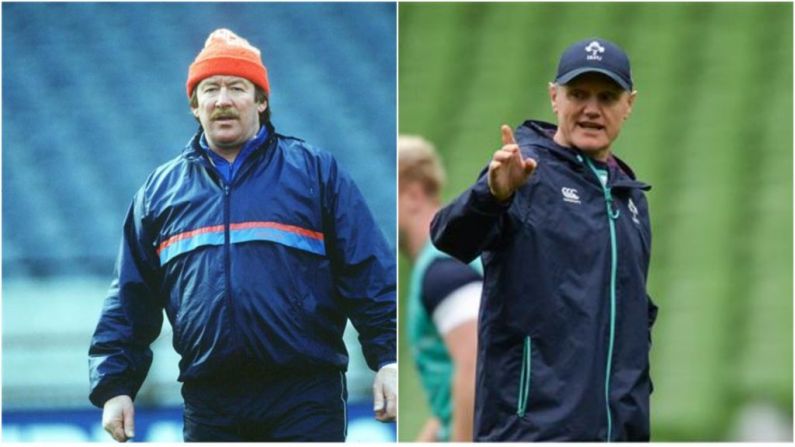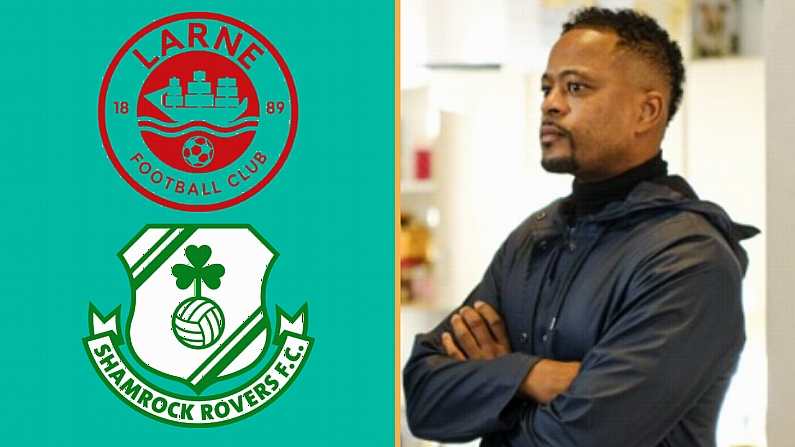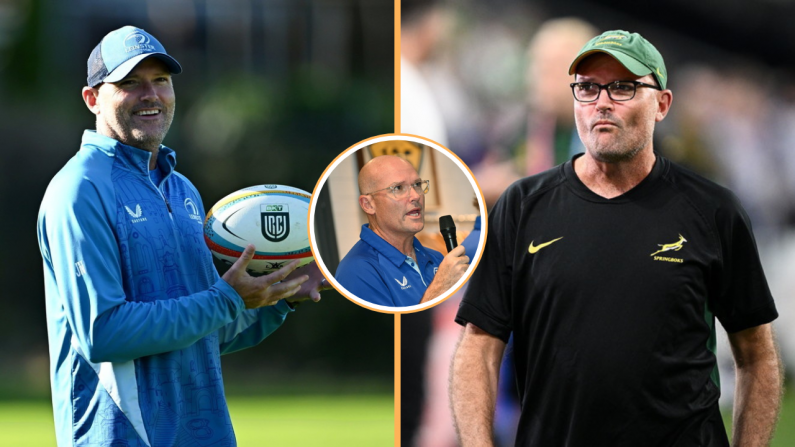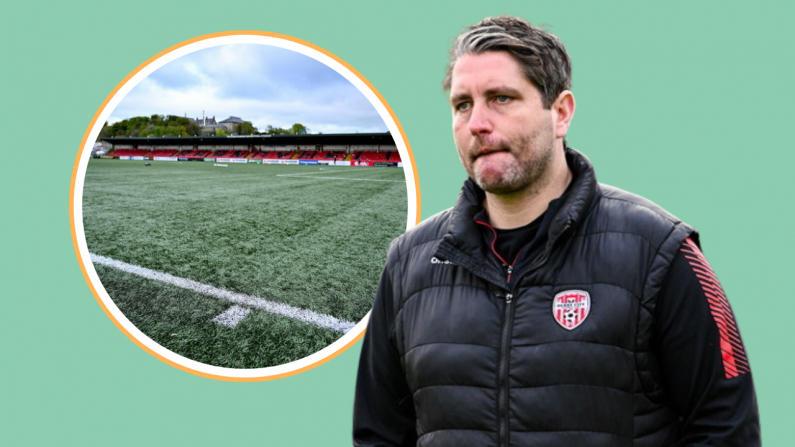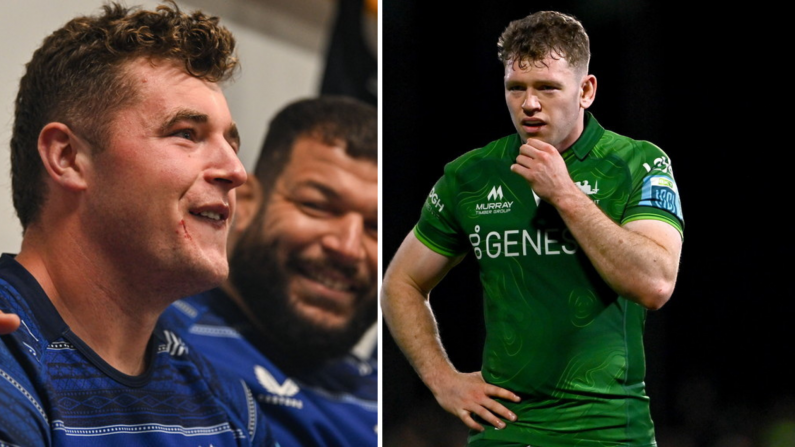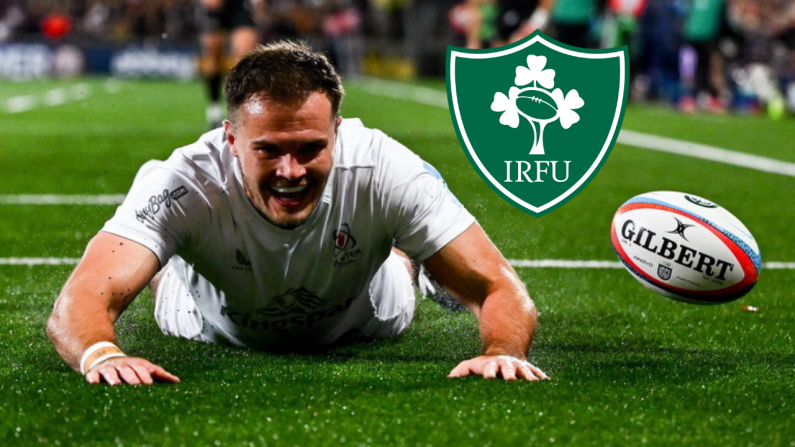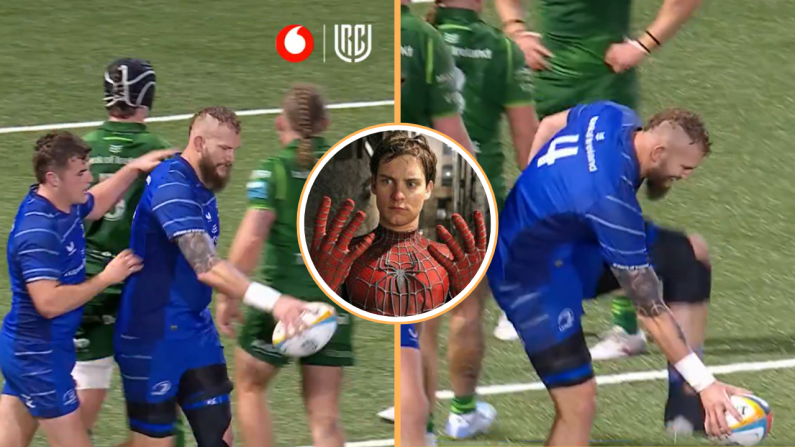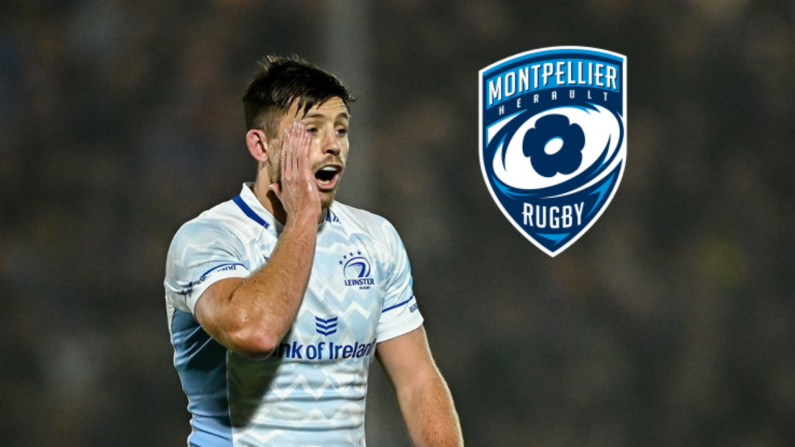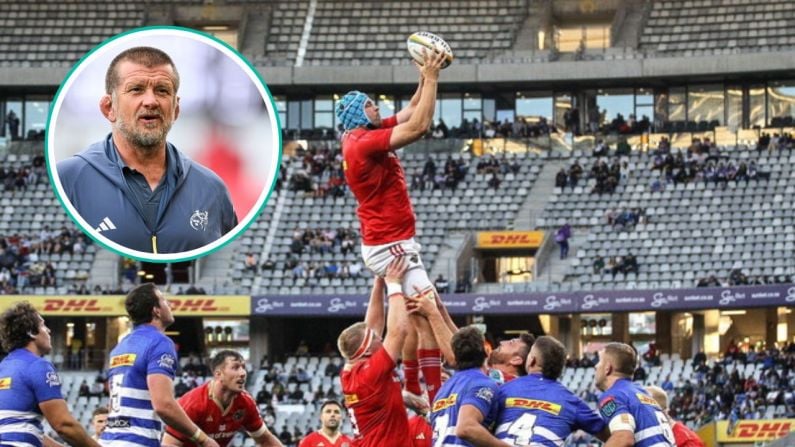In Tom English's book No Borders, Rory Best tells a story which shows Joe Schmidt's surgical attention to detail. Schmidt arrived at a meeting in the team hotel, and this was his greeting:
Joe found it and brought it into the team meeting. He says, 'Just to let you know that somebody on their way to their room dropped their key and holder on the floor and that sort of stuff won't be tolerated. If we're sloppy off the pitch, then we'll be sloppy on it.' I was sitting there thinking, 'Oh my God!'.
Here is Neil Francis in the same book, recalling tactical instructions given to him by former Irish coach Mick Doyle at the 1987 World Cup:
They picked me at No 8 for the Tonga game in that World Cup - that was my debut. I was fit. I wasn't carrying a pick of fat. I went up to Doyler and told him I hadn't played No 8 since I was fourteen years of age. I was expecting a masterclass because he was a good back-row forward in his time. I knew how to pick and go, but what else? What do I do if the scrum wheels and their No 8 goes open or blind, who takes who and do I cover inside or outside. He said: 'If the Pope comes around the corner of that scrum on a Honda 50 fucking nail him,' - and he walked away.
*****
The above is anecdotal evidence of just how much the role of the rugby coach has changed. Whereas Mick Doyle brought a reckless abandon to Irish rugby in the mid-1980s - leading to the '85 Triple Crown, one of the finest achievements of the amateur era, before seeing things change trajectory the following year - based on his "give it a lash" mantra, Joe Schmidt's near-obsessive level of control and detail currently has Ireland as competitive as anyone on the world stage. In the space of twenty-odd years, the role of the rugby coach has changed drastically.
In the video below, Leo Cullen gives an indication as to the level of devotion he gives to passing information on to his players, which seems to include working virtually every single day.
We decided to find out exactly how things had changed by speaking to Mick Galwey, who represented Munster and Ireland in both the amateur and professional eras. Whereas Cullen reveals below that Leinster players are briefed for particular opponents and situations ahead of the weekend's game, Galwey says the players of the amateur era were not given such bespoke preparation:
Listening to the current crop of players and Joe Schmidt and the whole lot, they seem to have a different game plan for every game. That wouldn't have happened in the amateur days. You'd play for your club on a Saturday, and then you'd head up to Dublin to train on a Sunday morning, so as to be back for work on the Sunday.
Before a Six Nations match, you might come together on the Wednesday and do a bit of scrummaging, have a bit of a run out on the Thursday, then you couldn't do much on the Friday and then play on the Saturday. The game plan would come together at the beginning of the year, when you would be given your line-out calls and your back moves and that's it, and it did not change. There was never an emphasis on shifting game-plan. If there was anything wrong, it would be seen as mentality, rather than tactically.
Compare that to the small change Joe Schmidt made in Irish training after the last-minute defeat to New Zealand in 2013. At the very beginning of his reign, Schmidt would end training with an intense three-minute drill, designed to mirror that of the final minutes of a match, when players are at their most fatigued. These drills would be open
These drills would be open play, and would be 15-on-15. The All Blacks, however, take an average of 3 minutes and 32 seconds to go through phases, stretch a defence and score a try out wide, so after the concession of a try in garbage time to the All Blacks, Schmidt lengthened the drill by 32 seconds, as Kevin McLaughlin told Newstalk.
That small change made a mighty difference in Chicago. But it was just one of many. Muriel Spark wrote that she loved to pile up the details, as that made an atmosphere. In Schmidt's case, the stitching of a hundred small details is what creates a winning one. As Sinead Kissane wrote in the Independent, the IRFU spent almost a year preparing to send the players to Chicago, which included sending a team to assess the quality of the hotel WiFi to allow analysis to be done on laptops and sourcing a local driver who knew the roads well enough to avoid the loss of time in the event of an emergency.
The IRFU list 19 people on the international staff, and this was all rather different to Galwey's days touring with the Lions in 1993:
Thirty players went on a Lions tour. We got a bagman and a rubman down there, who happened to be the same man. We brought a doctor, a physio, a manager, a forwards coach and a coach [Ian McGeechan]. We were handed out sheets to say that was our game plan, and that was it.
Cullen reveals one of the most important aspects of a coach's job is keeping a squad content and united. Given that most of that squad will not make a match-day squad, that's quite a tricky thing to balance. Cullen's line in the video that he faces "thirty-three difficult conversations" with those who are not picked would suggest a level of communication that did not always exist in Galwey's amateur days:
I often found out [that I was dropped] through RTE and Aertel. That's the way it was, and it was unfortunate, and that doesn't happen anymore, which is the most important thing. I'd often hear from mates of mine who would ring up and say 'oh, I'm sorry to hear you haven't been picked for such and such' and I'd say 'What? What did you hear?'.
So in fairness to the coaches today it's not an easy thing to do but it's something that they have to do. That's one of the great things about the professional game. I'd say the team is known on a Sunday or Monday and made sure it doesn't get out.
I mean, I wasn't picked for the 1995 World Cup, having been picked for the Lions two years before, and I found out on Aertel.
While Galwey experienced much of the rugged dignity of the amateur era, he did play well into the professional days, retiring from Ireland duty in 2001. He "loved" the professional experience, as it gave players more of a role, and a voice.
You had the likes of Stringer and O'Gara and all these guys coming into it, they weren't fazed by it, they were confident young men who weren't afraid to put their own stamp on it. Which we loved. That was one of the great things about professionalism, everyone had a say. Before you had the captains and not much else... in the professional era everyone was a decision-maker, and everyone had to have a say. Maybe not vocally. But you had accountability.
The whole structure of the game has changed, for the better. I imagine it's harder to be a coach. Coaches are challenging players, which is very important of course, but players are also challenging coaches. Young fellas coming out if academies today are sponges, they want to learn as much a they can. There's a bit of natural instinct still in today's game, but you're also aware of what you're meant to do, and what the guy next to you is meant to do.
With player empowerment, however, comes the stripping of excuses. That level of accountability, says Galwey, is one of the reasons behind Ireland's phenomenal discipline in the recent Autumn series: they were on the right side of the penalty count in all four games, conceding just three against Australia and four in each clash with New Zealand.
*****
But with all of the changes, some core characteristics remain, regardless of the era, or the finances and technology at a coach's disposal. Galwey calls it respect - "If I had respect for the coach and for the people involved, and this is a personal thing, I'd certainly have gone the extra yard for them" - and Cullen calls it the ability to show good leadership.
And although they worked in very different eras, and both had very different approaches, the notion of respect remained vital.
Again, we cite from No Borders.
Here's Johnny Sexton, recalling his thoughts after Declan Kidney's departure:
When Deccie left, there was only one guy I wanted to replace him - Joe Schmidt. All of us at Leinster knew how brilliant he was. We won two Heineken Cups under Joe at Leinster. I'd go in sometimes on the morning after a game and do a bit of recovery and more often than not he'd be in the office. I'd go up and chat with him and I'd say, 'Did you watch the game again', and he'd say, 'Yeah, I watched it a couple of time during the night.' I'd say, 'During the night?' and he'd say, 'Yeah'. Like it was normal.
Despite the magnificent Triple Crown in 1985, Doyle's reign went awry: Ireland finished bottom of the Five Nations in 1986. Donal Lenihan tells English that he lost some respect among the players towards the end:
I would always have respect for Doyler for what he did in '85, but he became this massive public icon and when the pressure came on he didn't handle it. We were at a team meeting out in the Royal Marine Hotel in Dun Laoighre and he said, 'I don't want to be remembered as the coach of a lucky Triple Crown team'. That was the day it dawned on me that Doyler, in his own mind, had become bigger than the team.
The more things change, the more they stay the same.

